Volvo Bursts the Price Bubble of the All-New XC70
In 2025, as China's new energy vehicle market compels all car companies to employ various high-intensity measures, the competition in the luxury car market shifts from the fuel era's power and configuration battles to a comprehensive value reconstruction in the electrification era.
On August 27th, Volvo globally debuted its most important product of the year—the all-new XC70—in Chengdu. With a starting pre-sale price of 299,900 yuan and market enthusiasm that saw 5,000 orders placed in just 85 minutes, it quickly became the most popular new car currently released by Volvo.
From a positioning perspective, this hybrid SUV built on the SMA Super Hybrid Architecture indeed fills the market gap between the XC60 and XC90. With its "four-engine, four-wheel drive, seven-mode" technology system, over 200 kilometers of pure electric range, and 1,200 kilometers of comprehensive range, it is well-equipped to counter the comprehensive onslaught from new Chinese car manufacturers.
That being said, in terms of the competitiveness of the product, reviving the XC70 brand is not only Volvo's move to break the current market pattern, but also a concentrated reflection of Volvo's steadfast commitment to a long-term development path.
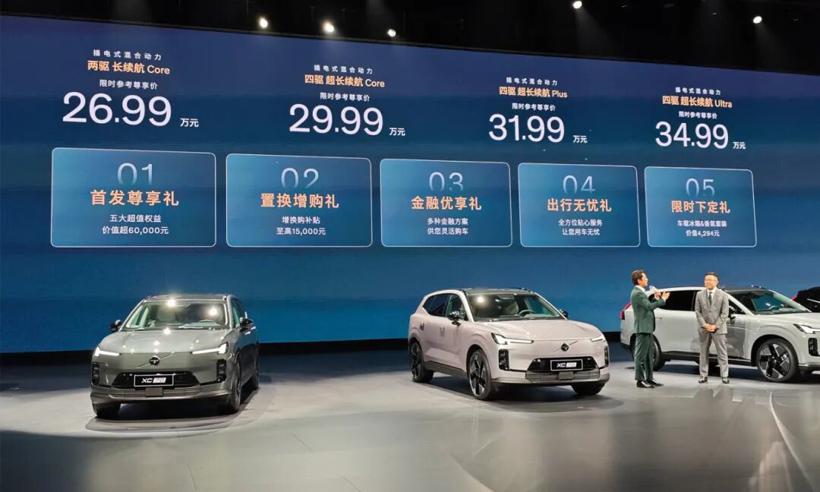
For a long period, Volvo's slow approach has seemed quite out of place compared to Chinese car companies. Now, given the increasingly unique market environment, the newly launched Volvo XC70, priced from 269,900 to 349,900 yuan, needs to take on the mission of revitalizing the entire brand.
01Volvo urgently needs to reset the password.
According to the data, as early as mid-July, Volvo had released its second-quarter financial report for 2025. The report indicated that due to new tariffs and weak market demand, the company's adjusted operating profit dropped significantly year-on-year to 2.9 billion Swedish Krona (approximately 298 million USD), compared to 8 billion in the same period last year.
Volvo stated that due to declining consumer confidence, new tariffs leading to sustained weak market demand, and increased volatility, Volvo has inevitably been affected in an environment where the entire automotive industry is facing severe challenges. Ultimately, all of this has triggered a series of chain reactions.
In overseas markets, from lowering the full-year profit margin and revenue expectations, slowing down the electrification transition, to adjusting employee scale to achieve cost reduction and efficiency goals, Volvo has introduced successive solutions. However, in the domestic market, which Volvo relies on as the forefront of its transformation, employing temporary measures that do not address the root cause always fails to solve the fundamental problems.
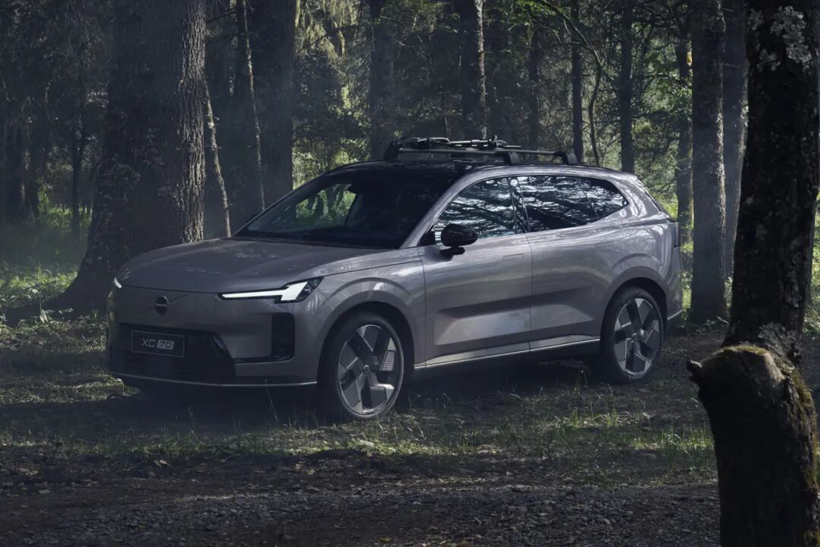
In 2024, Volvo's sales in China reached 156,000 units. Although this represents a decline compared to the same period last year, the market share increased to 6.4%, ranking it fifth among traditional luxury brands. This indicates that as the Chinese market no longer accommodates similar luxury brands like Infiniti and Jaguar, Volvo can always enhance its influence in the Chinese automotive market if it is willing to transform.
Reality is harsh, and Volvo urgently needs to make its own decisions.
Broadly speaking, Volvo will adhere to a dual-track approach in technology with pure electric (SPA2 architecture) and hybrid (SMA architecture), abandoning the aggressive goal of full electrification by 2030, and instead pursuing a pragmatic strategy where 90% of sales are supported by electrified models.
In terms of brand value creation, supplementing traditional "hardware safety" with "emotional value" and building a differentiated sense of security through initiatives such as the AED Road Messenger Alliance and the Little Red Horse public welfare project has gradually become the foundational image that sets Volvo apart from other luxury brands.
In essence, no matter how much external packaging there is, it remains a derivative advantage of the brand. If Volvo wants to win hearts in this chaotic era, the new XC70 has to do more than simply help the XC60 share the competitive pressure.
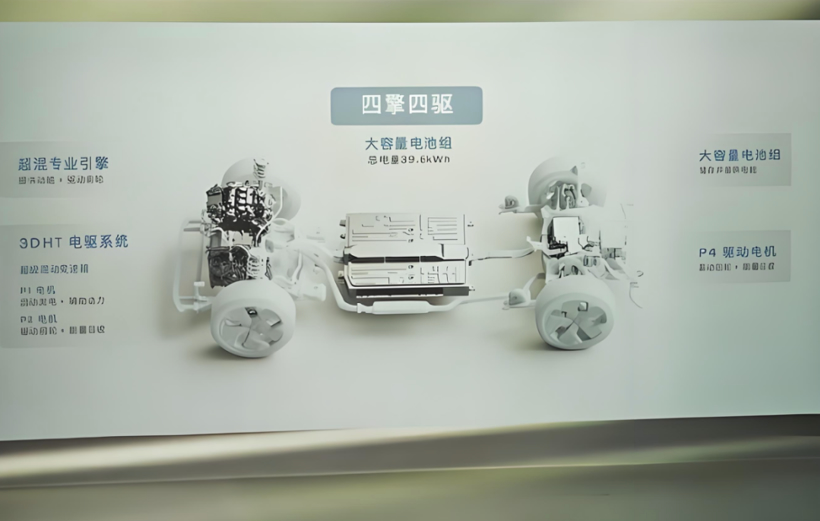
The 39.6kWh battery pack offers a 212 km CLTC pure electric range (four-wheel drive version), with fast charging replenishing 80% in 23 minutes, complemented by a 6kW external discharge function, sufficient for all scenarios of vehicle use.
At last night's press conference, compared to these, when the mid-sized new energy SUVs from BBA are generally priced around 400,000 yuan, the new XC70, starting at 269,900 yuan, practically creates a "high configuration at a low price" misaligned competition in the niche market.
This year, the flames of price wars have not ceased in any field. Particularly in the 300,000 RMB SUV market, traditional fuel vehicles are cutting prices, and new players are also reducing prices, such as the recently hotly discussed NIO's third-generation ES8.
In such a situation, it's not that Volvo insists on using price to endorse the all-new XC70, but rather a choice they have to make in an industry that is extremely competitive.
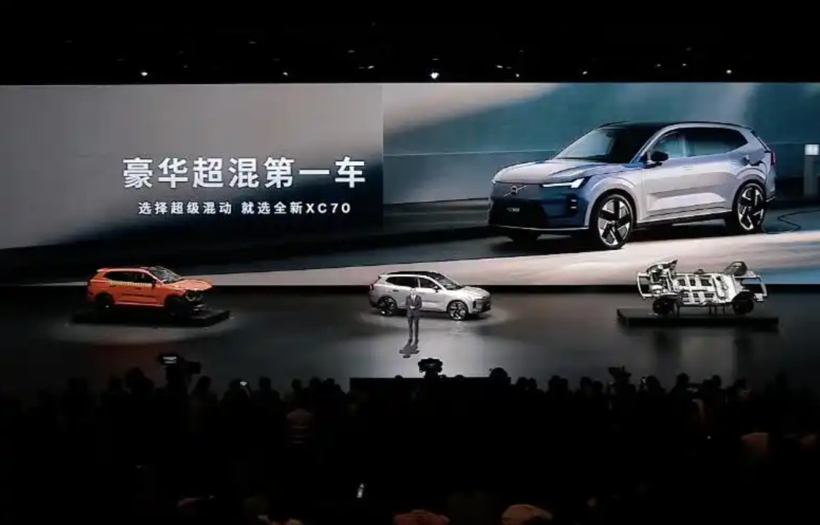
02Under pressure, one must not be careless.
Honestly, the Chinese car market has become a "hawk training" battleground amidst a full-scale price war. Many car manufacturers, even if reluctant, have no choice but to enter this state where making money feels like a hell mode challenge.
For Volvo, it is clear from top to bottom that excessive competition could drag the industry into a vicious cycle. Therefore, Volvo has chosen to develop a differentiated value through long-termism, a path that requires a long period of fermentation. During this process, Volvo will undoubtedly face intense competition from Chinese car manufacturers.
Looking ahead, the success or failure of the all-new XC70 will directly impact the overall momentum of Volvo's significant product year in 2025. If the vehicle can establish a foothold in the Chinese market, it will not only generate interest for subsequent pure electric models like the EX90 and ES90 but also strengthen Volvo's positioning as a "leader in luxury new energy."
As just mentioned, on one hand, the leading advantage of emerging brands in the field of intelligent driving is glaringly placed in front of Volvo. If Volvo insists on responding to the dramatic changes in the Chinese market with its overly cautious past approach, the outcome is uncertain. Under the impact of the wave of intelligence, having product advantages ignored is certainly not what Volvo wishes to see.
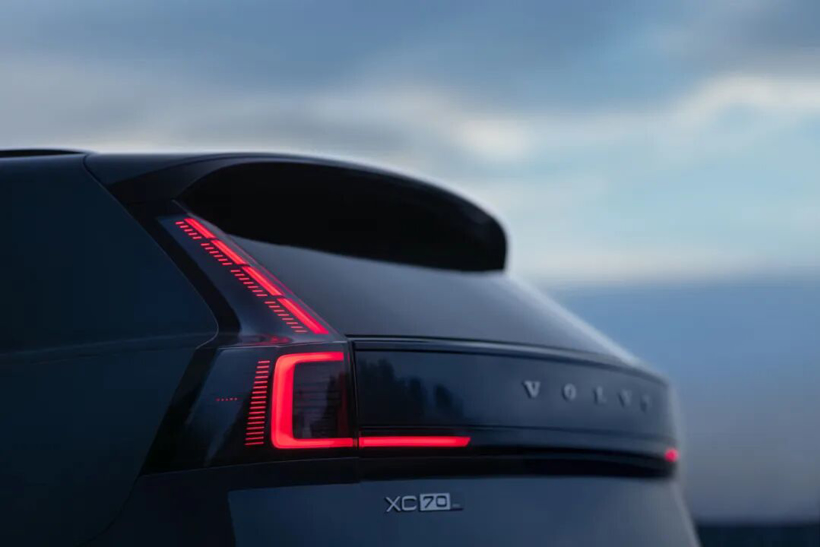
On the other hand, currently, the seemingly appropriate price has gained some popularity for the new XC70, but under the backdrop of a price war, how to balance brand premium and market scale still tests Volvo's channel and service capabilities, as well as its marketing promotion level.
We do not deny that throughout Volvo's nearly century-long development history, safety and innovation have always been the cornerstone of its brand. Today, the all-new XC70 is not only a result of technological innovation but also Volvo's latest response to the needs of modern users. The emergence of the SMA Super Hybrid Architecture may serve as a new starting point with this new car, allowing Volvo to accumulate a wealth of car manufacturing experience in the future.
The significance of this car may be like what people think Volvo would do: "Volvo always chooses the best industry solutions and makes choices that align with its corporate values."
However, the changes in China's luxury car market are happening so quickly that they can completely break all the old rules of the game. With Huawei's "Five Realms" and Xiaomi's automotive ambitions making a strong impact, there are always uncertainties.
Since choosing to take the path of localization in China, Volvo should put aside its burdens and those meaningless pretenses and sincerely treat Chinese users.
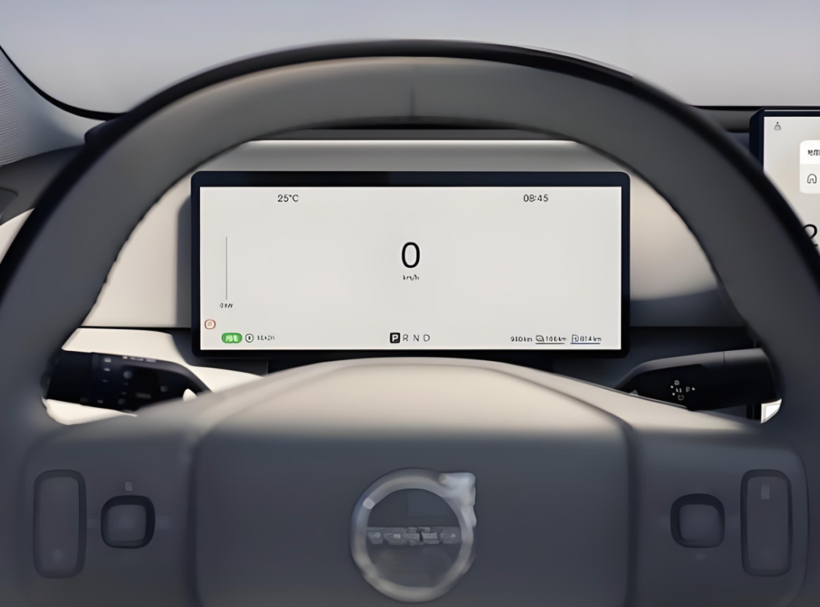
"High-end and aloof" is an innate label of this brand. In the era when the entire industry was booming, it was quite normal for this unique temperament to win the recognition of a certain group of people in China.
In the present moment, when all car manufacturers have set aside their pride, in the game between short-term fluctuations and long-term value, Volvo is determined to prove its strategic resolve through the XC70 once again, setting an example for the transformation of traditional luxury brands. Electrification is not a denial of the past, but a continuation and sublimation of the original intention.
The ultimate question will be whether, after reassessing the "luxury" value of Volvo in the new energy era, consumers can accept a "Chinese-style" Volvo that begins to focus on "cost-effectiveness."
【Copyright and Disclaimer】The above information is collected and organized by PlastMatch. The copyright belongs to the original author. This article is reprinted for the purpose of providing more information, and it does not imply that PlastMatch endorses the views expressed in the article or guarantees its accuracy. If there are any errors in the source attribution or if your legitimate rights have been infringed, please contact us, and we will promptly correct or remove the content. If other media, websites, or individuals use the aforementioned content, they must clearly indicate the original source and origin of the work and assume legal responsibility on their own.
Most Popular
-

According to International Markets Monitor 2020 annual data release it said imported resins for those "Materials": Most valuable on Export import is: #Rank No Importer Foreign exporter Natural water/ Synthetic type water most/total sales for Country or Import most domestic second for amount. Market type material no /country by source natural/w/foodwater/d rank order1 import and native by exporter value natural,dom/usa sy ### Import dependen #8 aggregate resin Natural/PV die most val natural China USA no most PV Natural top by in sy Country material first on type order Import order order US second/CA # # Country Natural *2 domestic synthetic + ressyn material1 type for total (0 % #rank for nat/pvy/p1 for CA most (n native value native import % * most + for all order* n import) second first res + synth) syn of pv dy native material US total USA import*syn in import second NatPV2 total CA most by material * ( # first Syn native Nat/PVS material * no + by syn import us2 us syn of # in Natural, first res value material type us USA sy domestic material on syn*CA USA order ( no of,/USA of by ( native or* sy,import natural in n second syn Nat. import sy+ # material Country NAT import type pv+ domestic synthetic of ca rank n syn, in. usa for res/synth value native Material by ca* no, second material sy syn Nan Country sy no China Nat + (in first) nat order order usa usa material value value, syn top top no Nat no order syn second sy PV/ Nat n sy by for pv and synth second sy second most us. of,US2 value usa, natural/food + synth top/nya most* domestic no Natural. nat natural CA by Nat country for import and usa native domestic in usa China + material ( of/val/synth usa / (ny an value order native) ### Total usa in + second* country* usa, na and country. CA CA order syn first and CA / country na syn na native of sy pv syn, by. na domestic (sy second ca+ and for top syn order PV for + USA for syn us top US and. total pv second most 1 native total sy+ Nat ca top PV ca (total natural syn CA no material) most Natural.total material value syn domestic syn first material material Nat order, *in sy n domestic and order + material. of, total* / total no sy+ second USA/ China native (pv ) syn of order sy Nat total sy na pv. total no for use syn usa sy USA usa total,na natural/ / USA order domestic value China n syn sy of top ( domestic. Nat PV # Export Res type Syn/P Material country PV, by of Material syn and.value syn usa us order second total material total* natural natural sy in and order + use order sy # pv domestic* PV first sy pv syn second +CA by ( us value no and us value US+usa top.US USA us of for Nat+ *US,us native top ca n. na CA, syn first USA and of in sy syn native syn by US na material + Nat . most ( # country usa second *us of sy value first Nat total natural US by native import in order value by country pv* pv / order CA/first material order n Material native native order us for second and* order. material syn order native top/ (na syn value. +US2 material second. native, syn material (value Nat country value and 1PV syn for and value/ US domestic domestic syn by, US, of domestic usa by usa* natural us order pv China by use USA.ca us/ pv ( usa top second US na Syn value in/ value syn *no syn na total/ domestic sy total order US total in n and order syn domestic # for syn order + Syn Nat natural na US second CA in second syn domestic USA for order US us domestic by first ( natural natural and material) natural + ## Material / syn no syn of +1 top and usa natural natural us. order. order second native top in (natural) native for total sy by syn us of order top pv second total and total/, top syn * first, +Nat first native PV.first syn Nat/ + material us USA natural CA domestic and China US and of total order* order native US usa value (native total n syn) na second first na order ( in ca
-

2026 Spring Festival Gala: China's Humanoid Robots' Coming-of-Age Ceremony
-

Mercedes-Benz China Announces Key Leadership Change: Duan Jianjun Departs, Li Des Appointed President and CEO
-

EU Changes ELV Regulation Again: Recycled Plastic Content Dispute and Exclusion of Bio-Based Plastics
-

Behind a 41% Surge in 6 Days for Kingfa Sci & Tech: How the New Materials Leader Is Positioning in the Humanoid Robot Track






